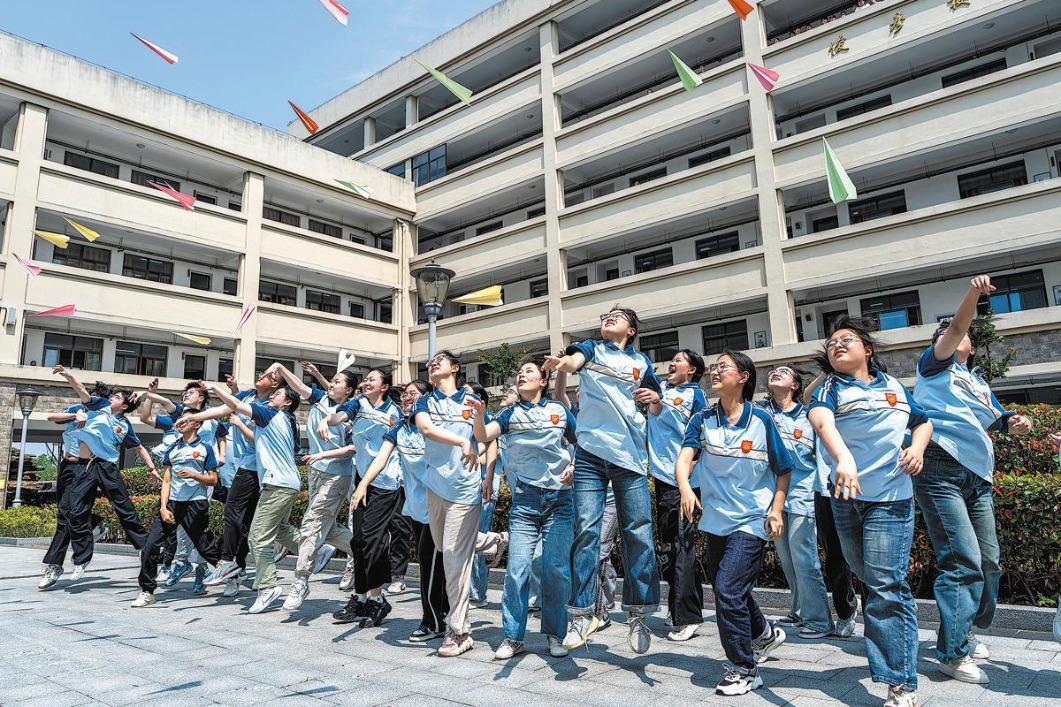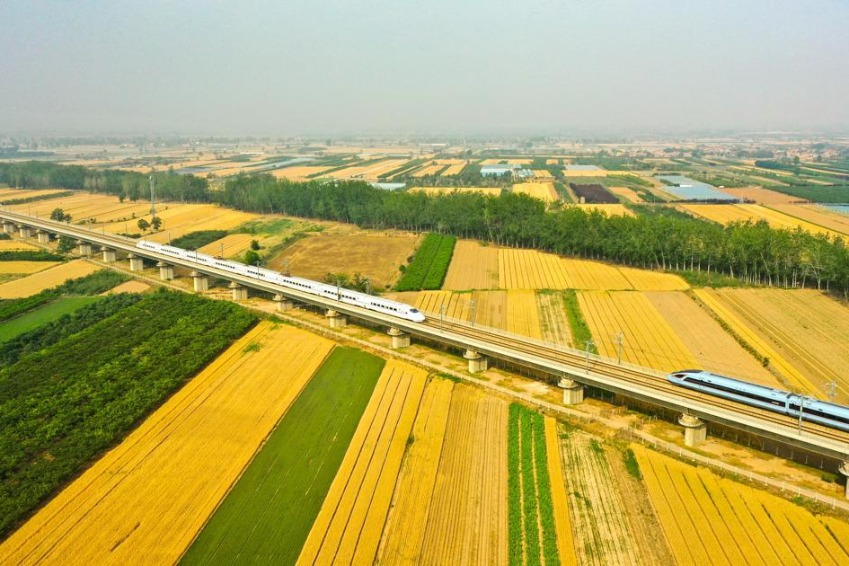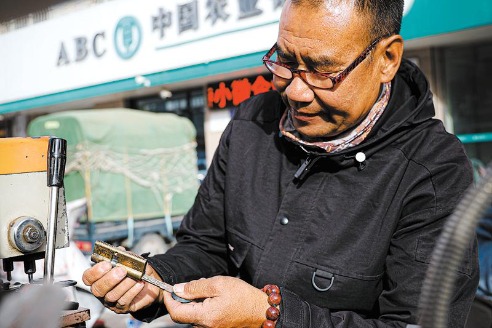US visa hurdles put international students on edge


Instead of the anticipated F-1 visa, a Chinese student received a green slip on Wednesday morning at the United States embassy in Beijing, initiating a waiting period of "about two weeks" for a decision that could affirm or upend his plan to start a master's program in the US in August.
Chris Yang, a senior English major at Beijing Foreign Studies University, received an offer from the University of Pennsylvania for a dual degree in social policy and public administration.
The atmosphere during the interview was notably more tense than it was two years ago when he was preparing to participate in an exchange program in the US, Yang recalled.
He said that on Wednesday, the visa officer asked only two questions: "Which school will you be attending?" and "What did you do in the US last year?"
Yang explained that he had taken part in an exchange program at the University of California, Berkeley and later went on a holiday trip to visit a friend and attend a concert.
"The visa officer was typing on the computer the whole time. He then took my passport and gave me a green slip, saying they needed additional administrative review," he recounted, adding that he was told to expect an update in about two weeks.
"My majors are not generally considered sensitive. In the past, visas for these fields were almost always approved without issue, while engineering students or PhD candidates were more likely to face visa hurdles," he said.
Recent US visa policies, including President Donald Trump's previous calls to pause visa interviews and scrutinize social media accounts, might be influencing the current climate, he added.
On May 27, the US halted the scheduling of new visa interviews for international students seeking to study in the country, aiming to expand the screening of their social media activity. As Yang had scheduled his visa interview days before the announcement, he was able to attend it in early June while new appointments were on hold.
He expressed concern over broader US rhetoric regarding the potential revocation of Chinese student visas. "I don't have a plan B, like a gap year or studying in another country. All my master's applications were to US universities," he said.
Growing anxiety
Yang's experience shed light on the growing anxiety among Chinese students amid shifting US policies toward international students.
On Thursday morning, a group chat on Chinese social media platform Xiaohongshu, also known as RedNote, sparked a heated discussion about Trump's executive order on Wednesday to restrict foreign student visas at Harvard University.
The move temporarily blocks nearly all new Harvard students from entering the US on the types of visas most international students use for university study or academic exchange programs.
Following the order, Chinese students — most of whom are currently studying at or preparing to attend Harvard — expressed shock and anxiety over the new visa policy in the "Harvard F-1 Student Support Group", a Xiaohongshu group created to share information and advice about overseas study.
Two Chinese students — holding F-1 and J-1 visas and not in their first year — claimed they were on a flight from China's Hong Kong Special Administrative Region to Boston in the US when they learned about the new policy, but they were able to enter the country smoothly on Thursday afternoon.
Meanwhile, some first-year students scheduled to travel to the US in the coming days said in the group chat that they had made emergency calls to Harvard International Office and were advised not to travel amid the uncertainty.
"Please inform us in the group if anyone successfully enters," one student said.
In response to the order, Foreign Ministry spokesman Lin Jian said on Thursday that China has consistently opposed the politicization of educational cooperation. The US actions in this regard will only harm its own image and international credibility, Lin said.
"We will firmly safeguard the legitimate rights and interests of Chinese students and scholars overseas," he said.
The visa suspension is the latest in a series of new policies recently announced by the US. Late last month, US Secretary of State Marco Rubio stated that the country would begin revoking the visas of some Chinese students, particularly those studying in "critical fields".
Chen Zhiwen, a member of the Chinese Society of Educational Development Strategy, said that revoking and restricting visas for Chinese students is one of the key strategies the US uses to contain China.
The US recognized that as long as China has talent, technological decoupling would be temporary, so it is simultaneously pursuing a talent containment strategy, he added.
Liu Wei, senior vice-president of New Channel International Education Group and CEO of its overseas study division, said the US has long been highly vigilant about the risks of technology transfer.
With technological competition intensifying, there is a more cautious approach toward certain groups of international students, Liu said.
Currently, the policies primarily target students with backgrounds in science and engineering, especially in fields such as artificial intelligence, aerospace, quantum computing, electronic engineering and biotechnology. Students with family backgrounds in scientific research or the defense industry may also face more stringent scrutiny.
Liu suggested that parents and students should carefully consider alternative plans — such as preparing for a potential gap year or exploring other countries with relatively stable visa policies — in case studying in the US is obstructed or delayed.
According to experts, the future of Chinese student enrollment in the US will be shaped by a complex interplay of factors including visa policies, international relations and the comparative quality of education systems.
"If the US maintains stringent visa regulations, the current downward trend in enrollment may continue, with a shift toward nonsensitive majors and a more selective student body," Liu said.
Moreover, as global education systems improve and other countries implement policies to attract international students, the competition may prompt further changes in the number of Chinese students choosing the US — even if visa policies stabilize, he added.





































